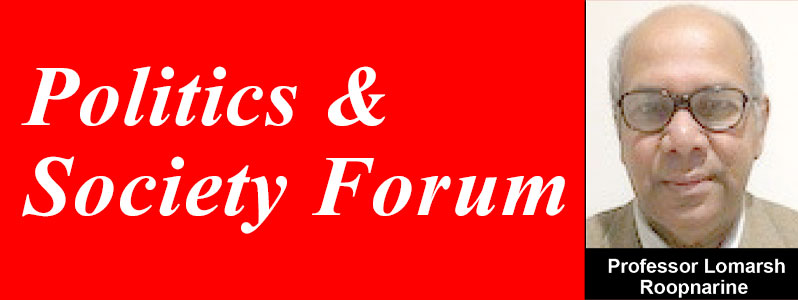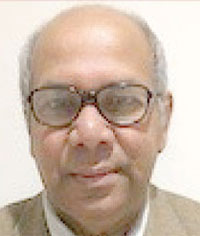I AGREE with the observation that developing countries have been struggling with the management and protection of their natural resources in the drive to achieve acceptable standards of growth and development. I refer specifically to those countries in Africa, Latin America, and the Caribbean which, in the past 60 years, have emerged from colonialism but are still endowed with enormous natural resources. This is the predicament, a textbook of sorts, in that these countries are rich in resources but are the poorest in the world. This is no trivial matter but one of grave concern since 90 per cent of oil production will take place in countries that are considered as politically and socially unstable, according to Transparency International 2015.
Why developing countries have been locked in the above predicament cannot be reduced to the argument that foreign investors or multinational corporations are rich and powerful and developing countries are poor and powerless when contracts are signed between them. That may be the case. However, developing countries can now hire international experts to advise them, and learn from the mistakes of other developing countries. We cannot settle for what William Shakespeare says in Othello, who steals my purse steals trash, but he who filches me robs me of my good name. We need both the purse and good name to wake and lift us up from somnolence. Some developing countries, like Malaysia, have done well in managing their natural resources to achieve sustainable development goals.
That said, I must admit that the management of natural resources in developing countries is unflattering. Until the 1970s, the extraction of natural resources was not carried out by safe environmental standards because natural resources were believed to be infinite and inexhaustible. However, as more emphasis was placed on using natural resources to generate growth and development, adverse effects on the environment became obvious. In a scramble to address this environmental malaise, sustainable development became the motivating principle on how mineral resources such as oil and gas would be extracted. According to the Brundtland Commission (1987), sustainable development is a form of “development that meets the needs of the present without compromising the ability of future generations to meet their own needs.” Viewed differently, the goals of sustainable development should be in cooperation rather than in conflict with each other. Countries in the developing world, particularly the ones endowed with natural resources, have embraced the sustainable development initiatives. They have endorsed many international environmental conventions including the Extractive Industries Transparency Initiative, signalling their position towards ecological sensitivity and prudent governance. These countries have also received financial support and technical assistance from developed countries and independent agencies to promote benign environmental practices. Yet, the extraction of their natural resources compatible with sustainable development expectations, the ability to stimulate economic growth, or the improvement of the quality of life of the citizenry, remain a daunting task.
Alongside these challenges, developing countries continue to implement myriad environmental legislation, but they are observed and obeyed symbolically. The biggest challenge is how to weave the practice of sustainable development and environmental concerns into the political, economic, and social system in the drive to achieve growth. Why is environmental protection so laggard in developing countries? It appears that environmental practices that require transparency, debate, investigation, and questioning are not seriously discussed across domestic political borders. The management of the environment is also spread out in many departments causing many conflicts and confusion. Environmental agency personnel are underpaid, under-resourced, untrained, and under-staffed rendering them susceptible to bribes and kickbacks. Policies geared towards reducing corruption, political instability, and social tensions do not make a perceptible dent in achieving a reasonable level of environmental management standards. Instead, a race to the bottom development is transparent. Successive political administrations are not only hamstrung by crime, poverty, mass migration, ethnic taxonomy, but also the lust to remain in power axiomatically catapults them in a position where management of natural resources runs counter to transparency and good governance.
When pressured, developing countries often assuage questions by referring to internal insurgency forces and foreign interference of its sovereignty to meet expected international environmental standards. Public accountability is not the norm while political patronage networks of corruption are encoded in administrative positions which are then emulated by the lower echelons of society. Meanwhile, multinational companies exploit the weaknesses of developing countries through signed contracts. They often state that they find themselves caught between aggrieved political parties clamouring for power and that they have limited or no say as to whom the political party in power partners with at the local and even international level. They are so betwixt.
Guyana is among the most recent oil producing states, and the question on everyone’s mind is as follows: is Guyana prepared to handle the challenges and complexities so associated with the oil and gas industry? Would Guyana avoid repeating the mistakes of the resource curse experienced by many developing countries? Several analysts believe that the genie is already out of the bottle since politicians from the former Government have practically handed over Guyana to multi-national corporations. That may be the case. Any dealings, however, with multinational corporations are not determined on a short but on a long-term basis. In that regard, there is hope for an improved relationship with foreign investors such as enlisting law firms, consultants, and energy strategists to establish institutions for capacity building and updating legal and regulatory framework, among other factors, in the drive to become a functional rentier state. Happy Holidays! (lomarsh.roopnarine@jsums.edu).




.png)









